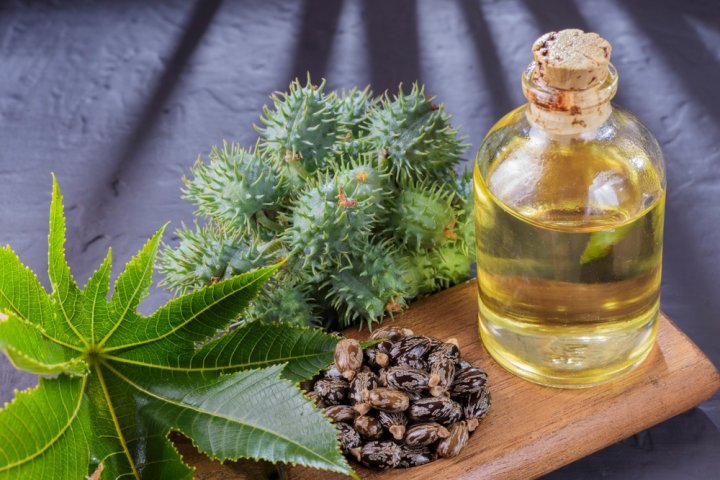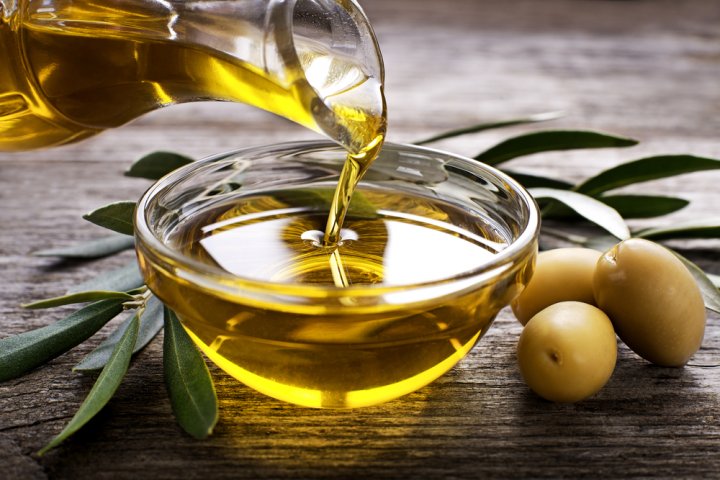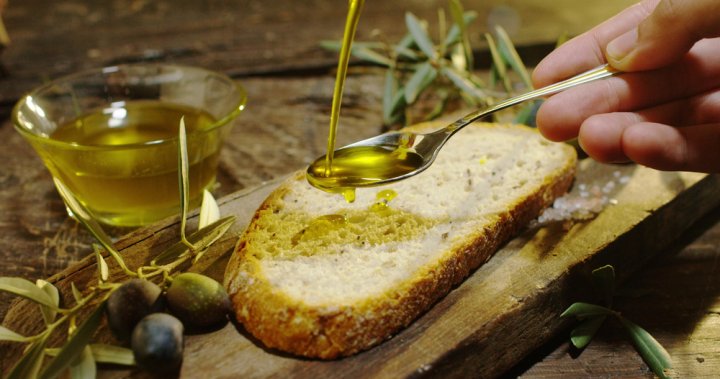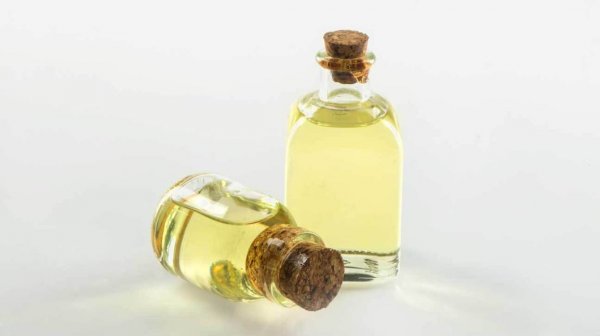-
 From Usage in Skincare to Treating Wounds Quickly, Castor Oil Has a Lot of Applications You May Have Never Heard of: Benefits of Using Castor Oil (2021)
From Usage in Skincare to Treating Wounds Quickly, Castor Oil Has a Lot of Applications You May Have Never Heard of: Benefits of Using Castor Oil (2021)
-
 Make the Miraculous Neem Oil a Part of Your Daily Life: Discover the Numerous Uses of Neem Oil and How It Can Give You a Radiant Skin, Lustrous Hair and Overall Health and Wellbeing! (2021)
Make the Miraculous Neem Oil a Part of Your Daily Life: Discover the Numerous Uses of Neem Oil and How It Can Give You a Radiant Skin, Lustrous Hair and Overall Health and Wellbeing! (2021)
-
 Wondering Whether Olive Oil is Good for Your Hair? Discover the Multiple Benefits of Olive Oil for Your Hair Plus 3 Olive Oil Hair Masks to Get That Luxurious and Glossy Mane (2020)
Wondering Whether Olive Oil is Good for Your Hair? Discover the Multiple Benefits of Olive Oil for Your Hair Plus 3 Olive Oil Hair Masks to Get That Luxurious and Glossy Mane (2020)
What is Castor Oil?

Castor oil is a vegetable oil that is extracted from castor beans. The hue of the oil can be anywhere between colourless to pale yellow. The oil can be recognised by its distinct odour and taste. Traditionally, castor oil has been used widely in medicines with its first recorded medicinal use in 1550 BC. Force feeding the foul tasting castor oil was used for punishing errant children and disobedient slaves and for torturing enemies, but thankfully, and rightly so, that practice has been discontinued. Nowadays it is used mainly as a food preservative, in alternative medicine, in the manufacture of soaps, paints, coatings, dyes, wax, polish, inks, brake fluids, cold resistant plastics, pharmaceuticals, nylon and perfumes.
Castor Oil: Uses and Benefits

Castor oil gives you a host of health benefits:
- It acts as a natural laxative thus enabling smooth bowel movement. Castor oil is classified as a stimulant laxative meaning it increases the movement of the intestine muscles to clear the bowels. After consuming, castor oil is broken down in the intestines and ricinoleic acid is released. This acid is then absorbed by the intestines for laxative effect. A stimulant laxatives acts quicker and is great for relieving temporary constipation.
- This ricinoleic acid also imparts anti-inflammatory properties to castor oil. When the oil is applied topically, it reduces inflammation and relieves pain. People with inflammatory diseases like psoriasis or rheumatoid arthritis will find applying castor oil helpful.
- Castor oil has antifungal properties as well and is highly effective in countering the fungus Candida albicans. The fungus is responsible for a host of gum and root canal infections and plaque overgrowth. Thus regular brushing or rinsing with castor oil will lead to a healthy mouth.
- Castor oil also promotes wound healing.
Castor Oil: Side Effects to Know

The side effects of castor oil are as follows:
- One of the most concerning side effects of castor oil is that it induces labour. Doctors have been known to use castor oil to induce birth. So pregnant women, no matter the stage, must stop consuming castor oil completely.
- While castor oil is used to alleviate constipation, incorrect dosage can result in diarrhoea. Diarrhoea is a diabolical condition that leads to dehydration and imbalances in electrolyte levels.
- Some of you might be allergic to castor oil and if you apply it then there will be horrible allergic reactions as a result. It is always better to apply a little bit of castor oil on any part of your body first, wait for a few days to see whether there are any allergic reactions and then start using it.
What is Olive Oil?

Olive oil is the oil extracted from olives, the fruit of a traditional tree crop of the Mediterranean Basin. It is the most common vegetable oil in the world and has been used in cooking since ancient times. Ancient Greek and Roman cuisine featured both olives and olive oil and they are indispensable in modern Mediterranean cuisine. Olive oil is popular all across the world as a cooking oil and as a salad dressing. Besides cooking, olive oil is used in soaps, cosmetics and pharmaceuticals. It was and is still used in some religious rituals and as a fuel in traditional oil lamps.
Olive Oil: Uses and Benefits

Consuming olive oil will be beneficial to your body in the long run as it is packed with nutrients. Following are the health benefits of olive oil:
- The antioxidants in olive oil are responsible for imparting anti-inflammatory properties to it. Regular consumption of olive oil can reduce chronic inflammation which if kept unchecked will lead to a host of diseases. The same antioxidants reduce the oxidative damage of free radicals, which are known to cause cancer.
- Olive oil contains monounsaturated fat which has been linked to reduced risk of heart diseases and stroke.
- Alzheimer’s disease is a neurodegenerative condition that is caused by the saturation of beta amyloid plaques in the brain cells. Studies have shown that olive oil can help reduce these plaques.
- Olive oil has beneficial effects on insulin sensitivity and blood sugar levels thus it reduces the risk of type- 2 diabetes.
- Helicobacter pyroli is a bacterium that can cause stomach cancer and ulcers. Studies have shown that extra virgin olive oil can fight as many as eight strains of this bacterium.
Olive Oil: Know Its Side Effects

Olive oil is extremely healthy for you but it has certain side effects that you must be wary about:
- If used excessively on the skin, olive oil can cause acne. There have also been reports of allergic reactions on the skin after using olive oil, blackheads and skin rashes. Olive oil impedes the natural moisturising abilities of your skin and makes your skin dry.
- Olive oil can also cause diarrhoea, inflammation and gallbladder stones.
- Unprocessed olive oil if consumed regularly can increase the risk of heart attack, obesity, stroke, colon cancer, breast cancer and atherosclerosis.
- Overconsumption of olive oil can lead to a huge fall in blood pressure levels causing hypoglycemia, dizziness, weakness, excessive sweating, lightheaded feeling and kidney failure.
Comparison: Castor Oil vs Olive Oil

There are benefits and side effects of both the oils, and in an overview both the oils are good in their own respective ways. But if you have to compare these two oils then you can do so by their individual effects on your hair. Both castor oil and olive oil are beneficial to the hair but their effects are different from each other. Castor oil contains fatty acids and vitamin E which increases blood circulation to the scalp thus encouraging hair growth. It also keeps scalp infections and dandruff at bay. Split ends, dry and damaged hair can be rectified by applying castor oil.
Olive oil too encourages hair growth and reduces dandruff, but it is better known for making hair soft and shiny. It is the ultimate hair serum that hydrates each and every hair strand to make it soft and lustrous.
-
 From Usage in Skincare to Treating Wounds Quickly, Castor Oil Has a Lot of Applications You May Have Never Heard of: Benefits of Using Castor Oil (2021)
From Usage in Skincare to Treating Wounds Quickly, Castor Oil Has a Lot of Applications You May Have Never Heard of: Benefits of Using Castor Oil (2021)
-
 5 Best Neem Oil That Will Improve Your Skin with Regular Use Plus What Neem Oil Has to Offer for Our Healthy Skin in 2020
5 Best Neem Oil That Will Improve Your Skin with Regular Use Plus What Neem Oil Has to Offer for Our Healthy Skin in 2020
-
 Have You Ever Thought of Using Olive Oil for Something Other than Cooking or Eating(2020)? 10 Olive Oils for Smooth and Radiant Skin
Have You Ever Thought of Using Olive Oil for Something Other than Cooking or Eating(2020)? 10 Olive Oils for Smooth and Radiant Skin
-
 The Elixir Dermatologists Swear by(2020)! Top Argan Oil Brands in the Market and Benefits of Argan Oil for Skin!
The Elixir Dermatologists Swear by(2020)! Top Argan Oil Brands in the Market and Benefits of Argan Oil for Skin!
-
 भारत में इन 10 सर्वश्रेष्ठ जैतून के तेल ब्रांडों के साथ स्वस्थ रहें। जैतून के तेल के बारे में 6 दिलचस्प तथ्य (2020)
भारत में इन 10 सर्वश्रेष्ठ जैतून के तेल ब्रांडों के साथ स्वस्थ रहें। जैतून के तेल के बारे में 6 दिलचस्प तथ्य (2020)
Whichever One You Choose, Use Only Pure Oils
The concept of adulterated oils is nothing new to Indians. All of you would have heard, read or experienced adulterated oils. So, once you have decided to use castor oil or olive oil (or both) do a little market research to identify brands which are known to manufacture and supply pure, unadulterated oils whose quality is assured and certified. This will ensure that you derive the maximum benefits from these oils. Also, it would be prudent to consult your dietician or physician before you start using these oils. We hope you would have found this BP Guide informative. Stay connected with us for more such engaging content.


 Highlight the Best Facets of Your Incomparable Beauty: Discover the Best Face Highlighter Currently Available in India and Everything You Need to Know About Using Face Highlighters for Maximum Effect (2023)
Highlight the Best Facets of Your Incomparable Beauty: Discover the Best Face Highlighter Currently Available in India and Everything You Need to Know About Using Face Highlighters for Maximum Effect (2023)
 Forget the Blemishes and Get that Picture Perfect Flawless Radiance on Your Face: Check out the Best Foundations for Oily Skin Currently Available in India and Everything You Need to Know About Makeup Foundations (2023)
Forget the Blemishes and Get that Picture Perfect Flawless Radiance on Your Face: Check out the Best Foundations for Oily Skin Currently Available in India and Everything You Need to Know About Makeup Foundations (2023)
 Make Your Presence Felt Wherever You Go: Discover the Best Perfumes Under 2000 for Both Men and Women to Announce Your Arrival and Make Any Occasion Memorable (2023)
Make Your Presence Felt Wherever You Go: Discover the Best Perfumes Under 2000 for Both Men and Women to Announce Your Arrival and Make Any Occasion Memorable (2023)
 Protect Your Oily Skin from the Harmful Rays of the Sun: Discover the Best Gel Based Sunscreens for Oily Skin and Everything You Need to Know Before Buying One (2023)
Protect Your Oily Skin from the Harmful Rays of the Sun: Discover the Best Gel Based Sunscreens for Oily Skin and Everything You Need to Know Before Buying One (2023)
 Minor Blemishes and Wrinkles Affecting Your Confidence? Check out the Best BB Creams to Conceal Your Worries and Nourish Your Skin to Restore the Healthy, Radiant and Glowing Complexion Back Again (2023)
Minor Blemishes and Wrinkles Affecting Your Confidence? Check out the Best BB Creams to Conceal Your Worries and Nourish Your Skin to Restore the Healthy, Radiant and Glowing Complexion Back Again (2023)
